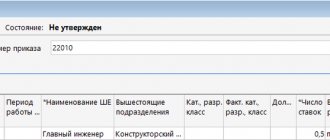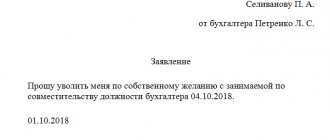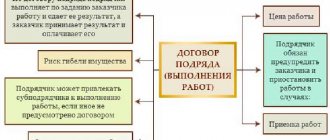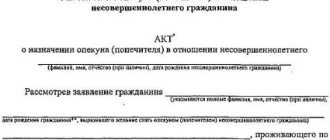The Labor Code of the Russian Federation allows for the possibility of employment for additional work. An employee can perform additional duties simultaneously with his main job or in his free time. Depending on this, the employer and the employee formalize a part-time job (internal or external) or combination.
This article will discuss internal part-time work, its differences from part-time work, and the correct registration of an employee for additional work in accordance with current legislation.
Part-time work: concept and types
Quite often, an enterprise has employees registered as part-time workers.
Part-time work means that an employee works in one organization in the main position, and at the same/another enterprise performs some regular type of activity in his free time (Article 282 of the Labor Code of the Russian Federation). The key words in this case are “free time” and “regularity”.
Part-time work can be:
- external (main and additional work is performed in different organizations);
- internal (additional work is performed in the same organization as the main one).
Registration of a full-time employee as a part-time employee is often more profitable for the employer than searching for and hiring an applicant (despite the fact that he may refuse this job even after completing his training). Workers also benefit from the institution of part-time work, as it allows them to receive additional income.
The specificity of part-time employment is that the conditions of such work are made dependent on the applicant’s main job for the position. That is, if the applicant does not have a main job, then he cannot be hired for a part-time job.
In Art. 60.1, 66, 68, 282 - 288 of the Labor Code of the Russian Federation do not provide for any restrictions related to the number of registrations for a part-time worker. That is, you can apply for a part-time job as many times as necessary (depending only on desire and strength).
How to draw up an order for internal part-time work
The form for such an order recommended by law is T-1. It was approved by Decree of the State Statistics Committee of Russia dated January 5, 2004 No. 1. Since 2013, all unified forms are applied only at the request of the organization. She must record her decision on the choice of forms of primary documentation in the accounting policy.
Thus, the document can be drawn up in free form, observing the structure of this type of paper, if such a decision is made in the company. In this case, the organization’s letterhead is used for the order.
What needs to be indicated in the document:
- Name of the organization and other information about it. This information will be automatically inserted into the header of the order if it is created on company letterhead.
- The name of the document, its number, subtitle.
- Place (settlement) and date of drawing up the order.
- Basis for drawing up the order. Art. is indicated here. 60.1 of the Labor Code. You can also write about the need to solve any labor problems.
- Full name of the hired employee, the date from which he will begin work, position. It is imperative to note the fact of internal part-time work. If the employee is hired for a specific period, then you need to indicate it.
- The salary due to the employee, working hours, breaks for meals and rest. If necessary, indicate that payment is made in proportion to the time worked.
- The document providing the basis for leaving the order. The employment contract and its details are indicated here.
The order ends with the signature of the manager and employee. The latter signs that he has read the order.
Internal part-time and combination: what is the difference
Very often the concepts of “internal part-time work” and “combination” are confused, considering them synonymous. In fact, these are two different options for designing additional work.
Article 60 of the Labor Code of the Russian Federation prohibits requiring an employee to perform duties not stipulated by his employment contract. Therefore, if an employer requires an employee to expand the range of his duties, perform work in a different profession, or replace a temporarily absent employee, then the legislation provides two options for registering additional work for an already registered employee: part-time or part-time work.
Part-time work represents the full performance of duties by an employee with the mandatory conclusion of an employment contract (Article 60.1 of the Labor Code of the Russian Federation). In this case, additional work is performed regardless of the main duties in the time free from the main job. Part-time work is regulated by Chapter 44 of the Labor Code of the Russian Federation. The procedure for part-time work for teachers and doctors has certain features; it is determined by regulations of the Government of the Russian Federation for each category of these persons.
Part-time employment is issued for vacant positions. After registration, the part-time worker is assigned an independent personnel number. Keeping records of the working hours of a part-time employee and the main position is carried out separately.
If the employer finds another employee for a part-time position, for whom this work will be the main one, then he can fire the part-time employee. This right of the employer is provided for in Art. 288 Labor Code of the Russian Federation. In this case, the part-time partner must be notified 2 weeks before the date of termination of the contract.
Internal combination is the performance by an employee of an organization of additional duties without interruption from his main job. In this case, new work is performed for the same (increase in the volume of work) or related (expansion of responsibilities) position within the framework of one employment contract. For combination, it is not necessary to have vacant positions; it can also be registered for an occupied position (for example, during the absence of the main employee). The possibility of combination must be provided for in a collective agreement or other local act of the organization. on the time sheet .
For greater clarity, let us combine the distinctive features of internal part-time and combination in the table.
Combination
Combination is the assignment of additional responsibilities to an employee, along with the work specified in the employment contract. This work must be paid and performed within a specified working day.
Various combination options are possible. For example, a leading accountant was assigned to manage the organizations assigned to his colleague during his vacation. This is an expansion of the service area or an increase in the volume of work. Another type of combination is the combination of professions and positions. For example, a warehouse manager performs the duties of a loader.
Here are the basic rules that should work when combined:
- all professions and positions for which combination is provided must be indicated in the staffing table.
- the employee's written consent must be obtained for combination.
- the employer and employee may refuse to combine. The other party must be notified of this decision three working days in advance.
Part-time and combination can be used simultaneously. An employee can receive a salary for a part-time job and at the same time receive an additional payment for a part-time job. There is no prohibition on this in the legislation.
Internal part-time work: limitations and features
There are categories of workers for whom part-time work is prohibited by labor legislation. In accordance with Art. 282, 329, 276 of the Labor Code of the Russian Federation it is unacceptable to hire as part-time workers:
- minors;
- persons who work in their main job with harmful (dangerous) working conditions, if part-time work will be carried out in similar conditions;
- employees of state and municipal institutions;
- persons whose main work is related to driving or moving vehicles, if the planned part-time work is similar;
- military personnel (except for such industries as pedagogy, science and creativity, provided that such part-time work will not interfere with the performance of military duties);
- security guards in relation to public service and paid work in public associations;
- judges, lawyers, prosecutors (except for such industries as pedagogy, science and creativity);
- heads of organizations without consent to part-time work from the general meeting of the organization’s participants (board of directors), from the main place of work.
Internal part-time work has a number of features:
- Internal part-time work is in fact additional work performed in free time from the main job in the same organization.
- In case of internal part-time work, a separate employment contract must be concluded between the employee and the employer (Article 282 of the Labor Code of the Russian Federation).
- Since the internal part-time worker has already been registered with this employer, he does not need to provide any documents to conclude an employment contract. An exception is a document confirming the competence of a part-time worker if the new job requires special qualifications.
- It is necessary to indicate in the employment contract and in the hiring order that it is an internal part-time worker who is being hired.
- Full-time internal part-time work is not possible.
- In case of internal part-time work, a separate time sheet is kept for the employee. This allows you to control the number of hours worked and prevent overtime (Article 91 of the Labor Code of the Russian Federation).
- An entry about part-time work in the work book is made at the request of the employee (Article 66 of the Labor Code of the Russian Federation).
How to apply for an external part-time job
As already mentioned, the hiring of a part-time worker is formalized with a traditional set of documents: an employment contract and an order issued on its basis. At the same time, both the contract and the order indicate the nature of the work - part-time.
Next, the employee’s personal card is compiled. But an entry about part-time work in his paper work book can only be made at his main place of work. (For information on how to do this and the risks involved, see “Part-time work: dealing with complex issues”). A part-time employer should not enter such information, even if the employee has provided a book and insists on it (Part 5 of Article of the Labor Code of the Russian Federation).
As for the registration of electronic information about work activities, there are no exceptions in this regard for part-time workers. Therefore, after hiring an external part-time worker, you must submit the SZV-TD form (Article 66.1 of the Labor Code of the Russian Federation, subparagraph 2, paragraph 2.1, Article 6, paragraph 2.4, Article 11 of the Federal Law of 01.04.96 No. 27-FZ). For more details, see “How to correctly fill out and submit the SZV-TD form” and “The Pension Fund explained how to fill out the SZV-TD form for a part-time worker.”
ATTENTION
When maintaining personnel records in the web service, you will receive timely reminders about the need to submit the SZV-TD.
If you hire or fire an employee, the program will notify you that a report must be submitted by a certain date. After this, you will be able to fill out the SZV-TD in the program interface and send the report via the Internet. Maintain personnel records in the web service, fill out and submit SZV-TD via the Internet
Remuneration for internal part-time workers
Remuneration for internal part-time workers is carried out in accordance with Art. 25 Labor Code of the Russian Federation.
Types of remuneration for internal part-time workers:
- time-based (proportional to working hours);
- piecework (depending on output);
- by agreement of the parties (the conditions are specified in the employment contract).
The guaranteed payment for a part-time worker is fixed in the employment contract, taking into account the wage system at the enterprise (Article 135 of the Labor Code of the Russian Federation). A part-time employee has the right to receive allowances, bonuses and other compensation and incentive payments on a general basis, if such additional payments are provided for by regulations, collective agreements and contracts, and internal regulations of the employer.
Who cannot be a part-time worker
Due to the direct instructions of Article 282 of the Labor Code of the Russian Federation, under no circumstances can you conclude an employment contract for part-time work with a person who is under 18 years of age.
It is also prohibited to engage on a part-time basis persons who will be employed in work with harmful and (or) dangerous working conditions, or in work related to transport or traffic control, if their main work takes place in the same conditions (Articles 282 and 329 of the Labor Code of the Russian Federation ).
Important
This prohibition applies to both internal and external part-time workers.
Accordingly, in such cases, persons applying for external part-time work must be required to provide documents on the nature of their main job. The head of an organization can be an external part-time worker only with the permission of the authorized body of the legal entity or the owner of the organization’s property, or a person (body) authorized by the owner. These are the requirements of Article 276 of the Labor Code of the Russian Federation.
Only with the permission of the employer can athletes and coaches take part-time jobs at their main place of work (Article 348.7 of the Labor Code of the Russian Federation).
Also, with the permission of the main employer and in the absence of a conflict of interest, civil and municipal employees can work part-time (clause 2, article 14 of the Federal Law of July 27, 2004 No. 79-FZ, clause 2 of Article 11 of the Federal Law of March 2, 2007 No. 25 -FZ).
For lawyers, prosecutors and police officers, part-time work can only be related to scientific, teaching or other creative activities (clause 1, article 2 of the Federal Law dated May 31, 2002 No. 63-FZ, clause 5 of Article 4 of the Federal Law dated 17.01 .92 No. 2202-1, paragraph 4 of Article 34 of the Federal Law of November 30, 2011 No. 342-FZ).
In addition, on the basis of Article 51 of the Federal Law of December 29, 2012 No. 273-FZ, the official duties of heads of state and municipal educational organizations, as well as their branches, cannot be performed part-time. An exception is made for managers of branches in which students receive exclusively practical training. If certain conditions are met, such a position can be filled part-time.
Check the counterparty for signs of a shell company and the presence of disqualified persons
No such prohibitions have been established regarding combinations. This is likely due to the fact that when combined, the relevant work is performed along with the main job responsibilities for the same employer during working hours. This means that the combination does not lead to a violation of the restrictions established in the Labor Code of the Russian Federation on the duration of work of certain categories of persons (minors, drivers, as well as those who work in harmful and dangerous jobs). Also, when combining, there is no conflict of interest, due to which bans on combinations have been introduced for a number of employees and civil servants.
Internal part-time work: how many bets are possible under the Labor Code of the Russian Federation
The tariff rate is included in the tariff system for differentiating wages of workers of certain categories (Article 143 of the Labor Code of the Russian Federation).
In practice, normal working hours are 8 hours per day (40 hours per week). This is the length of the working day that corresponds to the full tariff rate. At the same time, Part 1 of Art. 284 of the Labor Code of the Russian Federation establishes a limit on working hours for part-time work - no more than 4 hours a day. Consequently, in proportion, a part-time worker can be hired for no more than 0.5 of the tariff rate.
However, Part 1 of Art. 284 of the Labor Code of the Russian Federation allows that a part-time worker can work full time (shift) if he is free from performing job duties at his main place of work.
So, under standard working conditions, an internal part-time worker can only work at 1.5 times the wage rate (the full rate at the main place of work is 0.5 times the internal part-time rate).
Normative base
Ensuring employment of persons carrying out part-time work is regulated by the law of the Russian Federation in Chapter.
44 of the Labor Code of the Russian Federation, as well as the Resolution of the Min. labor and social development No. 41. The mentioned regulatory documents define the status of a part-time worker, the nature of his activities taking into account the conditions in the workplace, the rules for maintaining relationships, the work process, the salary level, as well as some social preferences.
Article 282 of the Labor Code of the Russian Federation regulates that part-time work includes permanent work performed during a period of time freed from main obligations as a permanent employee, who is subject to all local regulations of the institution from the date of signing the employment agreement.
Part-time work is allowed in multiple companies, provided that the person has the required skills and qualifications, and is also provided with free time to carry out additional duties.
The Labor Code of the Russian Federation allows two ways of part-time work:
- Internal. In this option, the employee has a part-time job at the base organization. At the same time, in addition to the signed employment agreement when joining the main institution, it is necessary to seal the agreement on part-time employment.
In fact, this method of combination is mutually beneficial for both parties. The employer provides work to a qualified specialist who has the opportunity to carry out job descriptions at an additional workplace, with a payment of 0.5 rates, and the specialist has the opportunity to earn auxiliary income.
- External – involves working for a third-party company. That is, an external part-time worker is a person who fulfills obligations at a third-party company in his specialization, under an auxiliary labor agreement, during the free period of time from his main responsibilities.
External combination is ensured by the fulfillment of obligations upon completion of working hours, on your days off, but at a third-party enterprise.
To summarize, it can be noted that legislative norms provide that a person has the right to:
- Work simultaneously in many companies. At the same time, employment in a company that is not part of the main job is considered external part-time work.
- Working at the company where the basic workplace is located, with additional fulfillment of obligations and with the necessary registration process, refers to internal part-time work.
Documents for internal part-time work and part-time work from the employee
When applying for an internal part-time job, the employee must first write an application. In principle, an application for a part-time job is not very different from the application that an employee writes when applying for a main job.
In case of internal part-time and part-time work, you do not need to present your passport and education documents to the employer again, since they have already been provided to the HR department during employment for the main job.
The only exception in this case is the employment of the main employee for additional work, which requires the presence of other qualifications.
Based on what documents are entries made?
If an employee has expressed a desire to include a note about external employment in his Labor Code, he must:
- request from the employer a certified copy of the employment order or a certificate indicating the name of the company, the number and date of the employment order, and the date on which the employee began his duties;
- write an application to the HR department at the main place with a request to make a mark in the Labor Code;
- Attach documents received from the second company to the application.
A certificate or orders for admission or dismissal are certified by the seal and signature of an authorized person. If an employee wants to enter information about internal employment, he only needs to submit an application to the HR department with a request to enter information into the Labor Code.
Part-time employment contract
An employment contract with an internal part-time worker is not very different from a standard employment contract. According to the standard, it is made in two copies (one for each side). The main difference is that it must contain the mark “on a part-time basis.”
Also, the contract must separately specify the number of working hours, since in accordance with labor legislation, the number of working hours of a part-time worker must be half less than the working hours of the main job for a calendar month.
In addition, according to the standard, an employment contract must include the following employment conditions:
- rights and obligations of the employee and employer;
- wages and social guarantees;
- working time and rest time;
- liability of the parties to the contract;
- amendment and termination of the employment contract;
- contract time.
An employment contract with an internal part-time employee can be fixed-term or indefinite, depending on the agreements between the parties and the specifics of the work performed.
Preparation of documents for internal combination
In order to correctly register an internal part-time worker, it is necessary that an employment contract be signed with the employee. But first, the employee needs to write an application for combination . In this case, you no longer need to present any additional documents - copies of your passport, SNILS, Taxpayer Identification Number, education certificate, etc. are already stored in the personnel department of the organization. The only thing worth considering is that if you plan to apply for an internal part-time job in another specialization, then the employee will be required to provide documents confirming it.
Question: The JSC transferred an external part-time worker to the main employees by drawing up an appropriate additional agreement to the employment contract. Can a JSC submit a report in the SZV-TD form ahead of schedule, that is, on the next business day after the date of execution of the transfer? View answer
After accepting the application, an employment contract is signed . Its main essence should not differ from a regular employment contract, but it is necessary to include the designation “on a part-time basis.” In addition, the number of hours an employee spends on part-time work cannot exceed 50% of the standard number of working hours per week.
The employment contract signed by the parties is the basis for the issuance of a corresponding order by the management of the organization, which must contain the number of hires as an internal part-time worker, as well as a mention of the employment contract.
If the employee expresses a desire, then in his work book, the company’s personnel specialist is obliged to make a record of the combination.
So, let's summarize. To arrange internal alignment, you need to take several steps.
- Receiving an application from an employee about the desire to work part-time;
- Signing an employment contract with the employee “on a combination basis”;
- Issuing the relevant order;
- Making an entry about the combination in the employee’s work book (at the request of the parties).
Can internal part-time work become the main job?
Labor legislation does not provide for a ban on the transition of internal part-time work to the category of the main job. There are two ways to make such a transition:
- The part-time worker is dismissed from the main place of work by order, and an additional agreement on the transition to the main job is drawn up to the part-time employment contract.
- The employee is completely dismissed from both positions and then rehired with a new employment contract.
How is dismissal formalized?
Information about dismissal from another organization is entered on the basis of a certified order or certificate from the employer. Information is entered in the HR department only for the main location. Since an employee is not required to inform his second job about his dismissal from his main job, a situation arises when an employee quit his main employer, but remained to work for an external one. In this situation, when the employee terminates the part-time contract, he will bring a confirming document to the new main workplace, and the HR department will write a line about dismissal. This is not an easy situation. To avoid mistakes, use the sample part-time dismissal: look for the entry in the work book on the second page.
Results
Thus, part-time and combination are two different concepts. Part-time work is actually a second job, while part-time work is only an additional responsibility to the main job.
Violations in this area entail liability in accordance with Art. 5.27 Code of Administrative Offences. To avoid mistakes in registering these labor relations, it is necessary to take into account their features and register employees only strictly in compliance with all established rules.
Unlock access to the private part of Clerk with a Premium subscription. Get hundreds of webinars and online courses, unlimited consultations and other proprietary content for accountants.
Hurry up to subscribe with a 20% discount until October 15, 2021. Read more about “Premium” here.
Reasons and reasons
An internal part-time worker is considered an employee performing 2 types of work - the main one and part-time. Moreover, in the second position, the employee works no more than 4 hours a day and in his free time from his main job (Article 284 of the Labor Code of the Russian Federation). In addition, both such workplaces are located in the same company (enterprise).
In Art. 77 of the Labor Code of the Russian Federation establishes general grounds for the dismissal of an internal part-time worker. These are the following:
- On the initiative of the head of the company (enterprise).
- At the employee's own request.
- Agreement of the parties.
- Circumstances beyond the control of the parties. These, in particular, mean:
- conscription into the ranks of the RF Armed Forces;
- death of an employee;
- occurrence of emergency circumstances, etc.
In addition, the head of the enterprise (company) can dismiss this employee under a special article. 288 Labor Code of the Russian Federation. In such a situation, the employer fires the part-time worker and hires a new employee in his place, for whom the part-time job will be considered the main form of employment. Such dismissal is permissible only if the employment contract with the part-time worker was concluded for an indefinite period (indefinite).
An internal part-time worker working under a fixed-term agreement (contract) cannot be deprived of work under Art. 288 Labor Code of the Russian Federation.
Information about this prohibition can be found in judicial practice (for example, in the appeal ruling of the Irkutsk Regional Court No. 33-839/14 of February 5, 2014, the Stavropol Regional Court No. 33-1702/14 of April 1, 2014, or in the ruling of the Moscow City Court No. 33-7266 of March 6, 2012, etc.).
Accordingly, the dismissal of such an employee is permissible only on the general grounds specified in Art. 77 Labor Code of the Russian Federation.
Regardless of the type of employment contract, an internal part-time worker is not subject to dismissal in the following situations:
- while on vacation;
- while on sick leave;
- during pregnancy;
- in other cases prescribed in Art. 261 Labor Code of the Russian Federation.
The head of the organization has the right to dismiss the employees specified in Art. 261 of the Labor Code of the Russian Federation, upon liquidation of an organization (Article 81 of the Labor Code of the Russian Federation) or in case of violation of labor discipline.





